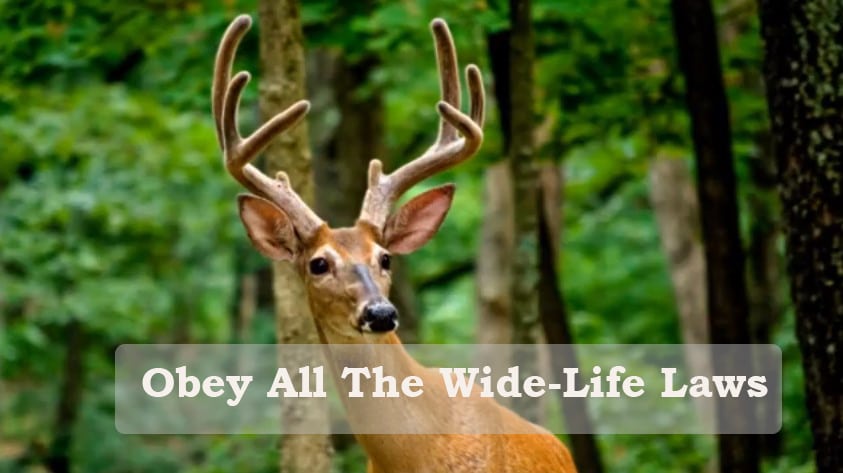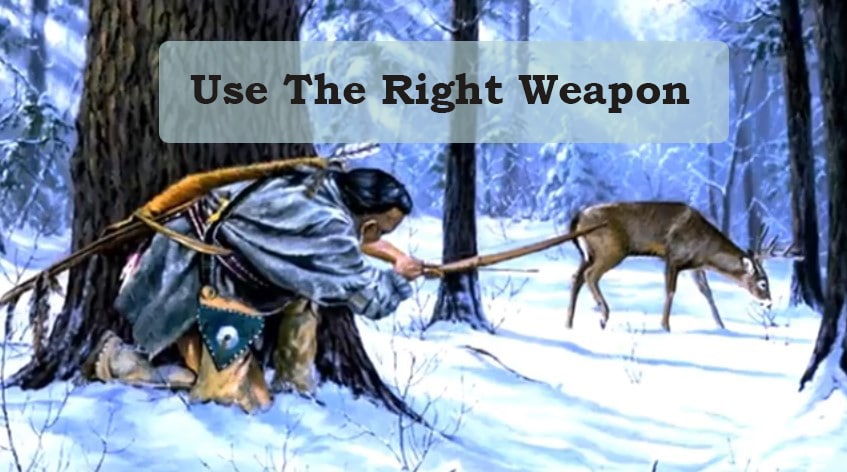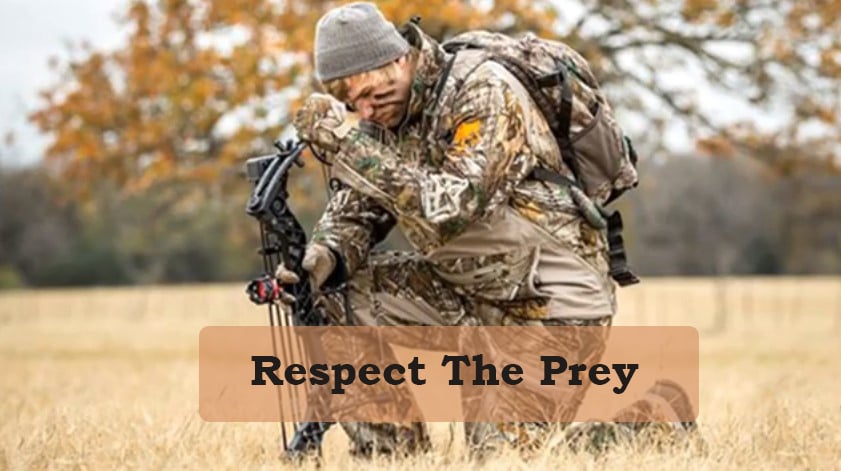7 Hunting Ethics That Every New Hunter Should Know
Hunting is rightly called the big game and it is indeed challenging. But despite the wild ecstasy embedded in hunting, it calls for some code of conduct. These are a set of rules called as hunting ethics, which are inspired by self-discipline and impetus of humanity.
Do you know that obeying hunting ethics can help you in the conservation of wildlife with a more ecologically balanced approach? In fact, wildlife and human community can exactly reside parallel to each other if hunters learn and follow the ethical hunting protocols.
Practice restraining will ensure self-discipline
The 4Cs defines hunting ethics, which can be epitomized in qualities like careful, considerate, capable, and courteous. Practicing self-control is a pivotal point that makes a hunter more restrained and controlled in his/her method and attitude.
Obey all the wide-life laws
Hunting laws may vary from one county to another, but there are some prevailing laws. Learn the laws where you are playing this big game. Unless you maintain all the hunting laws, you may be the subject of legal penalty and punishment.

It is therefore important to learn the local hunting laws where you are playing this shooting game. It is a professional obligation and should be performed as a responsible action from a socially conscious individual.
Use the right weapon
Using the right weapon is a mandate. If you are aiming at a wild animal, shoot it to kill. Therefore you must learn the right use of the weapon and the most realistic distance to shoot the target.

This is good for the prey and is one of the healthiest habits of a hunter regardless you are a beginner or a veteran. Also, practice taking a shot from a safe distance for all-rounder benefits. Next, you must practice well to get your target at one go.
Respect the prey
Hunting is obviously a brutal act as it involves the ending of an animal’s life. But it has to be as instant as possible. This is the minimum respect you can show it to your target. Therefore right aiming, use of the right weapon, and the skill to exert lethal shots are the prerequisite to continue with ethical hunting.

A painless death is one of the most important factors for the game you are selected, and it is one of the hunting ethics as well.
You should educate yourself about the animal’s dead points and fix the best spot to shoot the same that will result in the fastest chance of quick termination of its life.
Take care of the environment: use the animal fully
You may hunt in a private land by seeking permission from the authority and you have to follow the rules set by the owner.
However, you may find other hunters also in that place, sparing space and respect to others is a hunting ethic, which is an integral law for everybody. It is a part of courtesy.
Always try to use the place as it was and you should try to use the animal as maximum as possible. If possible bury the skeleton after you have taken off the flesh and skin etc.
Do not leave any animal wounded based on the missing target. It will cause pain and trauma in the animal you targeted, which is unethical in the code of ethical hunting.
Maintain some code of hunting ethics
It is illegal to kill an animal by applying mischievous acts like using kind of tranquilizer as well as willingly trapping it in ice, water, or in deep snow.
According to Oregon hunting rules, poisoning an animal or using a trap for killing an animal is strictly prohibited. There are some more mandates:
- Using electronic devices to attract animals or using the spotlight for hunting is strictly prohibited. The use of power vehicles to chase the hunting target is also prohibited in the US big game rules.
- Showing respect for non-hunters is a pre-requisite. Some non-hunters may stand sensitive to hunting. In these cases showing honor to their reservation will help in maintaining a positive image of the hunters.
- Using binocular or monocular is a better alternative for fixing the target rather than depending on the rifle’s scope.
- Respecting wildlife is a must-follow approach. Don’t ever kill to flaunt with your hunting skill.
- Do not kill a carrying (pregnant animal): same as applicable for lactating animals or her infants.
Read Also: How to Bed A Rifle Stock in Eight Easy Steps [Expert Says].
Learn ethical hunting by joining a course
Official training for ethical hunting is a good way to improve your knowledge, especially if you are a beginner. It is highly recommended to join a course to learn the county-specific hunting rules.
Also, getting involved in wildlife conservation programs is a passive way to love wildlife and its habitat conservation. Also, take care of:
- Using legal hunting methods and legal equipment.
- Obtaining a legal license and permit for hunting.
- Obeying the challenges of hunting amicably.
- Don’t spoil wildlife with garbage, leftovers, and spent shell casings.
- Try to arrange low-impact camping, etc.
These are the basic rules for ethical hunting that an ethical hunter should follow. Ethical hunting is a responsible act and besides knowledge, a hunter should act with the best possible responsibility.
Love for wildlife and the environment is a necessity to follow the rules of ethical hunting, which really can change the image of a hunter. These codes of conduct are not difficult to remember if you love them to follow.
N.B:
These codes of conduct are compiled from numerous sources along with the NRA (National Rifle Association), the Kansas and Oregon Hunter Education Manual.
Read Also: